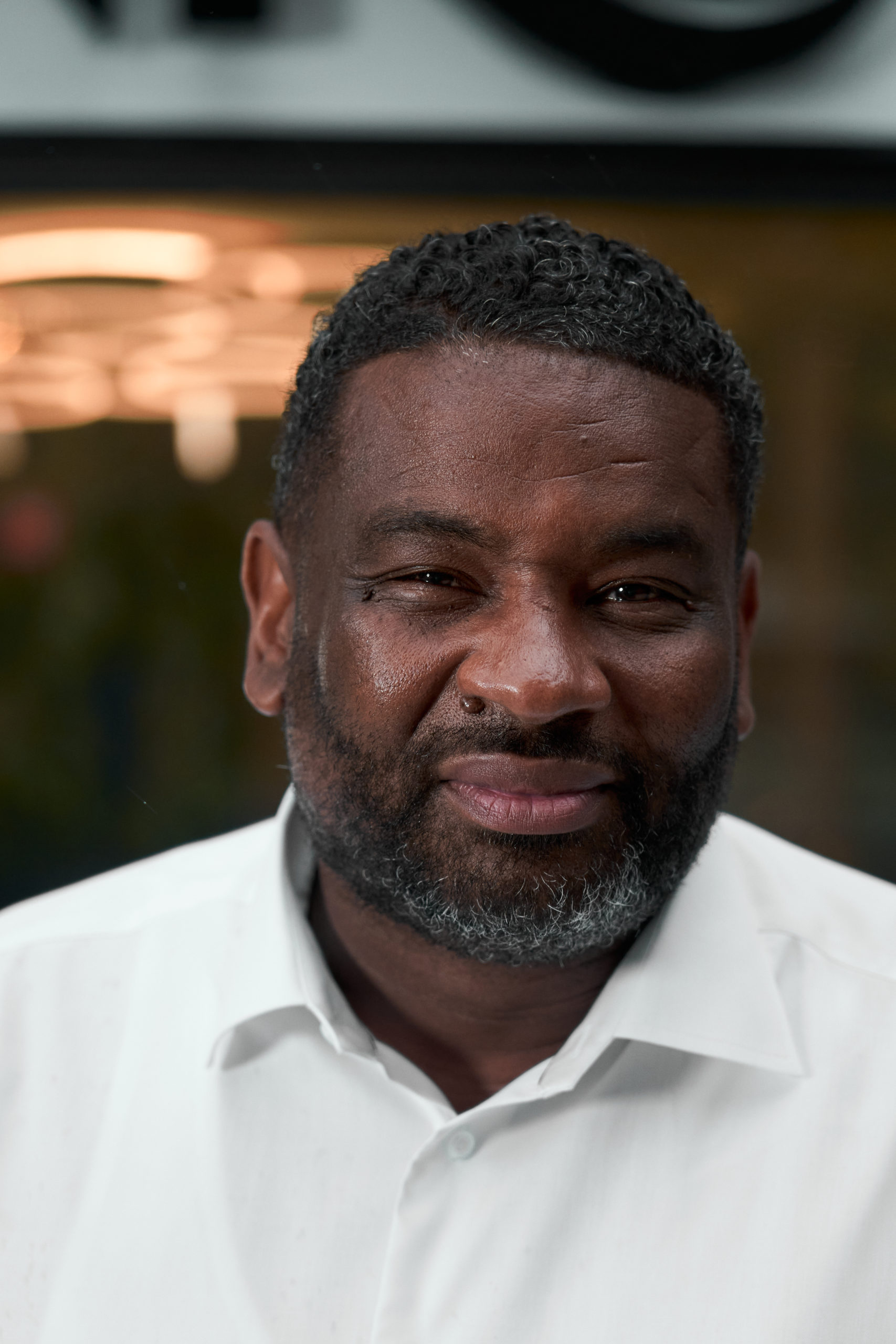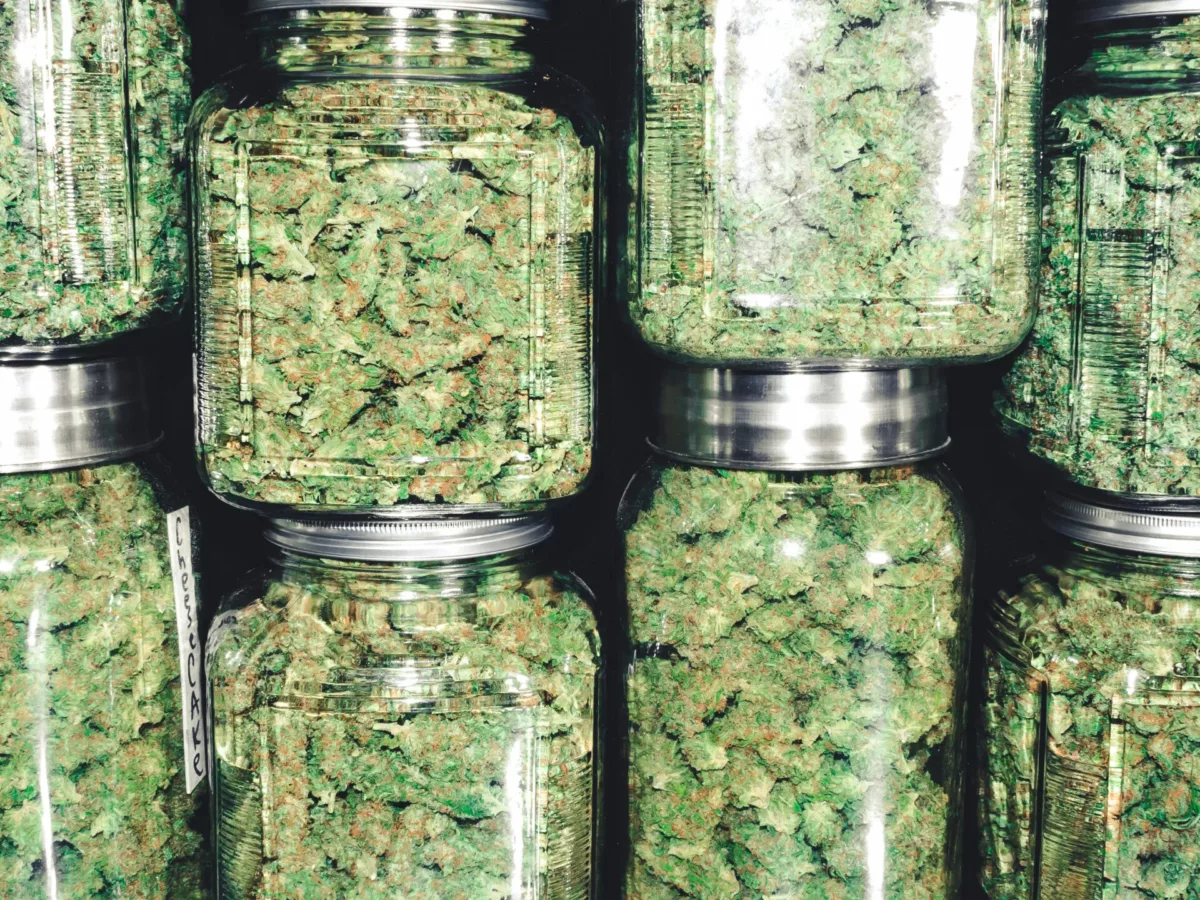The I-71 Committee has had a busy year of advocacy. Amid a push over the last year by D.C. government to more closely regulate and inspect recreational cannabis “gifting” businesses and bolster the city’s medical cannabis market, it’s been a time for gray market business operators to “come out of the shadows,” says Terrence White, the nonprofit business coalition’s newly appointed chairman.
In addition to being a longtime D.C. resident and a formerly incarcerated citizen, White is a newly minted operator in the city’s “gifting” market as the owner of Monko, a storefront in the Mount Vernon Triangle neighborhood.
Since last year, medical licensees and D.C. Council Chair Phil Mendelson have sought to reign in businesses like White’s with proposed fines and threatened scrutiny from District agencies, citing product safety concerns, competition for customers and other factors.
But the I-71 Committee is part of a growing cannabis business lobby that has successfully pushed back against stricter enforcement. Advocates and business owners have made the case that most unlicensed weed businesses are owned by local residents — often racial minorities — looking to get in on the ground floor of a lucrative industry, and are working within whatever legal space has been afforded to them. (Since 2014, when D.C. voters overwhelmingly approved Initiative 71 to legalize cannabis possession and cultivation for adults age 21 and up, such businesses have set up shop under a “gifting” loophole while Congress, in control of D.C.’s local budget, continues to prevent the city from expending funds to tax and regulate recreational cannabis.)
With White taking the helm of the I-71 Committee, The Outlaw Report spoke with him about what led him to the I-71 market, how his time in prison influenced his views on cannabis legalization, and his short- and long-term goals as the business group’s new leader.
This interview has been edited for length and clarity.
Outlaw Report: What brought you into the cannabis policy and business sphere?
Terrence White: I was incarcerated in 2010 in Morgantown, West Virginia, and I bumped into a college football buddy of mine — we both played linebacker — and I’m like, what’re you doing here? And he began to tell me about how he got eight years for a cannabis-related charge and that he had been in at that point about three years. I didn’t know because we kind of fell out of touch. That got me interested, and as I spent 19-and-a-half months in prison, I bumped into several guys that were there for cannabis-related charges. I thought that was weird because, hey, on one hand, cannabis is legal for people with cataracts and other ailments, but we’re talking recreation. We’re talking pounds of marijuana, something that’s grown from the earth. It struck me a little bit.
I returned home and got myself back together. And later, in 2015 I moved back to D.C. and I said to myself at that time that I wanted to get into the space. I started researching I-71, started researching cannabis businesses and visiting dispensaries across the country. I sat down and wrote a business plan for opening a luxury store. I wanted to take the stench off of cannabis, take the top off the trash can. For so long, people were frowning on cannabis, and I thought it was an ideal time to give D.C. something refreshing. How can cannabis look? Can it look like Gucci? Louis Vuitton? And I thought it could. Why not open a cannabis store to reflect those name labels? You have, in D.C., very prominent people, middle-class and upper-class people who like to indulge, so how about we make this something that’s cool? And that’s where things started.
OR: What are your goals as the new chairman for the I-71 Committee, short- and long-term?
TW: In the short term, my goal is to make as many dispensaries compliant as possible. When I say compliant — the council has the idea in their head that we don’t have business licenses, we don’t have a [certificate of occupancy], we’re not paying taxes, we’re not from the city, and that the majority of these stores are not made up of Black and brown people. My short-term goal is to validate that we are compliant, that we do have business licenses, C-of-O’s, we pay taxes, and that a majority of us are Black and brown, and women. That’s one of the biggest things that we have to overcome.
The next short-term goal is extending the tent. Right now we’ve got about 30 or 35 members that are on our email list and are involved in our meetings. My plan short-term, as well as long-term, is to grow that, to build a coalition of cannabis business owners in the city so that we can have a voice, so that we can speak in a manner of a union, as a team, and that the committee can say hey, these 50 or 100 businesses, they’ve got their shit together. That’s what it’s about: making sure that we operate just like everybody else.
Long-term, most important is to forge a pathway to a license. We want to be able to work on these recreational laws and make sure that we have a place as Black and brown people, as returning citizens, and make sure that not only do we have a place with a license, that we can cultivate, that we can resolve or bring solutions to the city that they don’t have at this current time. I’ve been working with City Council thus far to give them solutions on how to make D.C. do it right, to make it a better D.C. from a cannabis standpoint.
OR: How did your experience as a returning citizen shape your ideology about cannabis legalization?
TW: As a returning citizen, we face a lot of obstacles. I’ve been ridiculed trying to get a bank account because I’m a returning citizen. There’s a lot of hurdles that we face, but the biggest challenge that we face in the cannabis space is the whole social equity and justice part. Look, there’s no secret that Black and brown people have suffered from the most from the War on Drugs. We’ve done more time in prison — some of my friends that I know have spent more than half of their adult life in prison for something that, in my eyes, shouldn’t have happened.
But let me say this: My thought process is prison makes you either a better person or a better criminal. I know a lot of guys that have been to prison that ended up being a better person, including myself, because what prison does is it strips you. It allows you to get to know you again, if you take the time to do so. It touched me by me walking with all walks of life, rich and poor, to see they’re just like me. We all get $300 a month, get 300 minutes to talk, we get the same uniforms. So now all of a sudden, all egos are off the table. Once you humble yourself and allow yourself to accept that, and to really dig into yourself from an identity standpoint, from a spiritual standpoint, from a social standpoint, from a personal standpoint, it really can be good for you – not that you want to be there, but you can see the silver lining in something.
OR: You’ve toured the country visiting other dispensaries in legal markets. Have there been any lessons that you think D.C. government should apply to its gray recreational or legal cannabis markets?
TW: I think we can learn a lot from just the way that these dispensaries look — not looking like a doctor’s office or just a box. I think we as a whole, D.C., we’re very affluent. There’s a lot of money, politicians, doctors, lawyers, everybody’s smoking or partaking in cannabis in some way. It’s not like it was 10 years ago. People are coming out of the shadows, right? So why don’t the stores reflect that? Let’s reflect what cannabis is today.
I can’t press enough how cannabis can look in the future if we allow us to take the stench off of it. It can look like Louis, it can look like Gucci, and we can partake in it without people frowning upon us. That’s what I think D.C. needs to do, is take a tour of the country and see some of these dispensaries. Look at some of the cultivation. Because once you start to get all these dispensaries online and growing your cultivation, we’re talking about a billion-dollar-a-year tax base that goes to the bottom line. That’s deep.
OR: From your point-of-view working with businesses, what do you think it will take to get Congress to repeal the Harris Rider?
TW: I’m actually doing an event for the Congressional Black Caucus with some people at the federal level to talk about just that. I think because of the current administration and their lack of love for cannabis or drugs, it’s not a top priority. I think the Harris Rider will be in place as long as President Biden feels like it is necessary. Right now it’s not at the top of his food chain. But as we get past the midterm elections and move forward to 2024, I think it’s gonna become more of an issue. If things don’t go right for the Democrats, [cannabis legalization] is the one thing that you can push to motivate America. I think truly, it’s sad to say that we’ve got to wait for the midterms — I really wish that the Harris Rider would be ended tomorrow — but I am thinking that it’s gonna be another year, maybe two years, and then we’re probably gonna see some things changed.
There are some things that we’ve been talking about to policymakers on The Hill, and one of the things that they’re talking about is maybe the Appropriations Committee is not the way we should go — maybe we should talk to the DOJ about lifting the rider or taking this as a Schedule I drug off the list. Congress, they’re not passing any budgets, they’re just prolonging it. They can’t take the riders off or put new riders on [in temporary budgets], so as long as they don’t pass the [new] budget, it’s just there.
I guess the short answer is that it’s to be determined. Nobody knows because we don’t have any representation, we don’t have statehood, and one of the things that needs to be brought to the forefront is that we don’t have anybody lobbying for us in that aspect. So we’re gonna have to get creative. If we had control of our budget, we wouldn’t be talking about this. Statehood is a bigger problem. We’ve got to continue to fight for that.
OR: Why do D.C.’s I-71 businesses need a collective voice?
TW: Whenever you’re the underdog, whenever you’re the punching bag, you’ve got to have somebody to speak for you. If we can have a group of individuals and owners who go out and take themselves out of the shadows, and put their lives and businesses at risk to speak on behalf of the other owners and the people — because the citizens of D.C. want this, they voted on this in 2014 — that’s powerful. It takes a lot of guts, it takes a lot of courage to go out here and speak on this matter knowing that you’re going to be in the crossfire.
With the I-71 Committee, it’s being compliant, coming out of the shadows, talking to and lobbying all the council members and the mayor’s office and anybody else that will hear me say that hey, we are a safe haven. People like what we’re doing. We present a solution to D.C.’s cannabis problems. I think that’s what the voters want. I think that’s what the people want. As someone who is a longtime Washingtonian — I’ve been a resident here almost 30 years — it’s not a bigger and better challenge to be part of.






